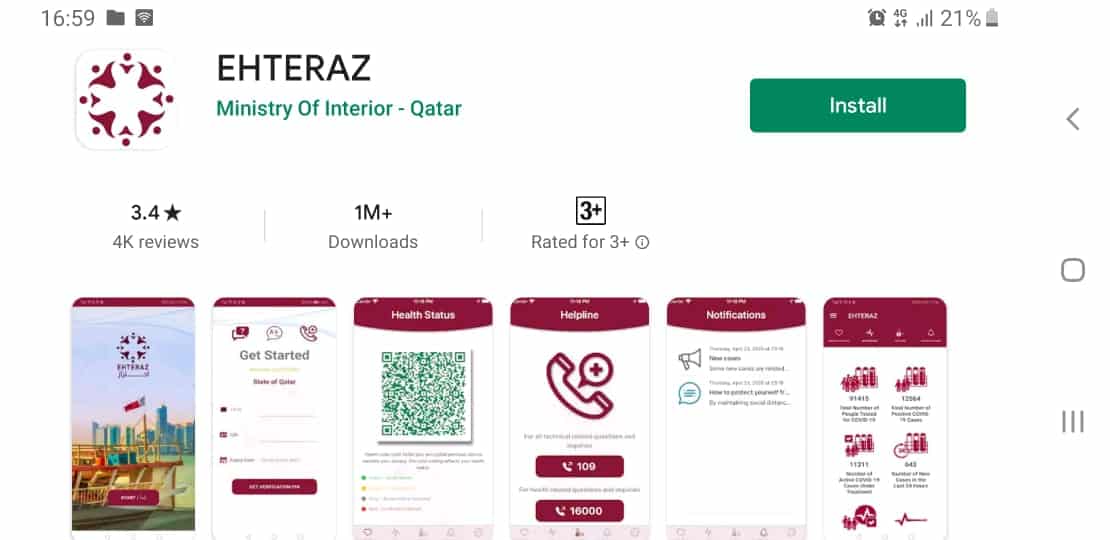The government of Qatar followed many others around the world by releasing a COVID-19 tracing app at the end of April. It became the first country in the world to make downloading the app a mandatory condition of leaving the house “for any reason,” like wearing a face-mask, on May 18.
The app tracks where an individual has been and who they have been in contact with by sending Bluetooth “pings,” or signals to other nearby devices. The app, developed by Qatar’s Ministry of the Interior, then sends data to the Health Ministry, which has assured users it will remain “completely confidential” and is only to be used for COVID-19 contact tracing.
App labelled “excessive” and “invasive”
A week on, Qatar’s residents have begun raising questions about the application, called “Ehteraz” (precaution) and its privacy implications. Users have raised concerns the app requests access to things on their phone not required for tracing, and may not work as expected for all users.
Early downloaders have raised the alarm about data infringements after installing the app and finding out it requests permission to access photo and video galleries and phone calls, not necessary for contact tracing. There is little choice though if users want to go outside, as local media reported that security forces have set up checkpoints around the country to check app installation and mask wearing, which are now compulsory.
Many Qatar residents who had already installed the app took to review forums to say that they support the idea of Ehteraz but question why it requires so many permissions, and complained that it drains battery.
“I appreciate the [initiative] but it is extremely unnecessary for the app to have access to my phone as well as media and storage on the device. Privacy is very important to me as well as others in Qatar and letting the government have access to people’s personal data is a bit excessive,” wrote reviewer Adam Zaki in the Samsung Play Store on May 22.
“Tracking movement is very helpful but infringing on personal data on the phone is wrong,” said Mohammed Dyer on May 25.
Other reviewers reported they could not register because their Qatari ID had expired, there was no way to turn off Bluetooth, tourist visa holders are unable to register, people were being wrongly classified as “suspected case” or “quarantined,” and some were unable to download the app on older phones.
Human Rights Watch researcher Hiba Zayadin told the French Press Agency (AFP) her organization had two key concerns with the app.
First, Zayadin said it “is highly invasive, with a range of permissions allowing the government access to things that are not needed for the purpose of contact tracing, permissions that are unnecessary and present a concerning invasion of privacy.”
“Many migrant workers in the country don’t have compatible phones that would allow them to download the app and comply,” she added.
There have also been reports of people purchasing a cheap, disposable second phone on which they can install the app, according to posts in local expat social media groups and review sections on app stores.
Qatar has recorded a relatively high number of coronavirus cases for its small population of around 2.7 million. Another 1,751 people tested positive for COVID-19 in the last 24 hours, taking the country’s total active cases to 35,076. The death toll stands at 26 after three more people died from the virus on May 25.

